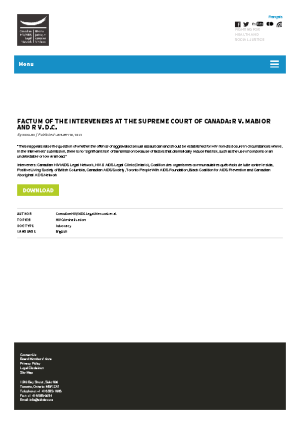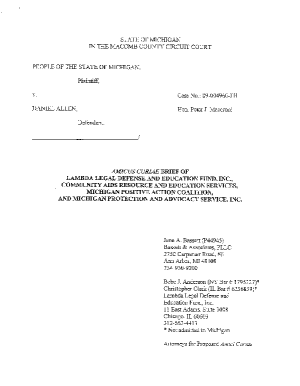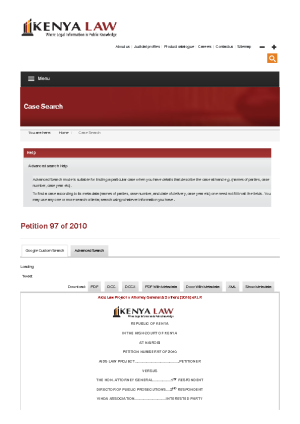Challenges Section 79 of the Zimbabwe Criminal Law (Codification and Reform) Act 23 of 2004, with the court deciding the provision was overly broad and unconstitutionally vague.
Joining legal proceedings
Includes resources used to join court cases and decisions from cases where community advocates have joined proceedings to support individuals and/or ensure key arguments are made.
Pity Mpofu Samukelisiwe Mlilo v The State, Consitutional Court of Zimbabwe
On appeal, the Consitutional Court of Zimbabwe decided the only defence to prosecution is disclosure of known or potential HIV infection and suggested people with HIV can be discriminated against by the law if the reason is to protect public health.
Factum of the Interveners at the Supreme Court of Canada: R v. Mabior and R v. D.C.
Questions whether the offence of aggravated sexual assault can and should be established for HIV non-disclosure in circumstances where, in the Interveners’ submission, there is no “significant risk” of transmission because of factors that dramatically reduce that risk, such as the use of condoms or an undetectable or low viral load
Amicus Curiae brief of Lambda Legal Defense and Education Fund, Inc., Community AIDS Resource and Education Services, Michigan Positive Action Coalition, and Michigan Protection and Advocacy Service Inc.
Urges court to drop a bioterrorism charge against an HIV positive man who bit his neighbour during an argument, explaining the facts about HIV transmission risk. The bioterrorism charges were dropped.
Judgment On Section 24 Of The HIV and AIDS Prevention and Control Act
Outlines the AIDS Law Project’s suit (Petition No. 97 of 2010) against the Attorney General and Director of Public Prosecutions regarding the constitutionality of section 24 of HIV and AIDS Prevention and Control Act. The court found that some terms were too broadly defined and that Act contravened Kenya’s constitution.




